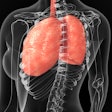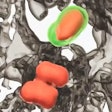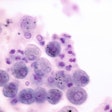
Patients who have severe lung infections, are immunocompromised, or suffer from a pulmonary disease like cystic fibrosis (CF) may have a novel treatment in the works. A study, published in the Proceedings of the National Academy of Sciences, examined an improved formula of rifamycin in treating mycobacterial lung infections.
Rifamycin is an antibiotic commonly used to treat tuberculosis (TB). As non-TB pulmonary pathogens, such as Mycobacterium abscessus, become more resistant to available drugs, researchers have explored new treatment options. The study, “Next-Generation Rifamycins for the Treatment of Mycobacterial Infections,” details these findings.
Researchers from the United States and Germany used a multistage process to identify and evaluate modified rifamycin compounds. They manufactured new versions of rifabutin (a form of rifamycin) that were assessed for antibiotic resistance, cytotoxicity, metabolic stability and drug-drug interaction. Additionally, the team predicted drug favorability by analyzing pharmacokinetic properties.
Of the new rifamycin analogs, UMN-120 and UMN-121, which belong to a C25-substituted carbamate series, demonstrated the best overall results. Key findings include:
- Improved potency against M. abscessus and M. tuberculosis
- Increased metabolic stability
- Reduced risk of drug-drug interactions
- Decreased production of CYP3A4, an enzyme that controls drug absorption, resulting in higher efficacy and lower toxicity
Scientists tested the compounds in mouse models infected with M. abscessus and found single agent administrations to be as or more effective in reducing pulmonary bacterial load compared to standard-of-care combination therapy, which includes four drugs.
The research group announced the preclinical compounds, UMN-120 and UMN-121, will move to investigational new drug studies to further evaluate efficacy and safety in humans and support clinical development. Initial results indicate a possibly new pathway for developing safer and more successful treatments for lung infections, TB, CF and other pulmonary conditions or comorbidities.






















